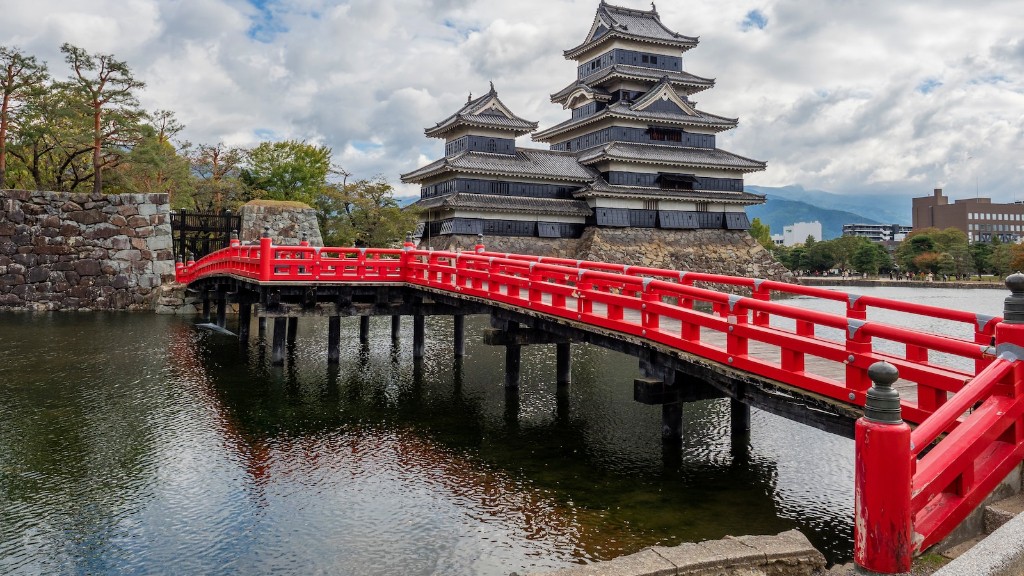Work and Travel Program Japan
A work and travel program in Japan is an exciting opportunity for individuals seeking travel abroad. The program offers a chance for travelers to become immersed in Japanese culture, explore the beautiful islands, and to experience the unique hospitality of the Japanese people. Participants have the opportunity to visit some of the magnificent shrines and temples, sample traditional cuisine, witness amazing festivals, and more.
There are a few things to consider when applying to a work and travel program in Japan. It’s important to research the program in detail in order to determine if it’s the right fit for you. You’ll also need to consider the costs associated with the program – the fees, transportation costs, and accommodations. Additionally, the program might require a minimal level of Japanese language proficiency, so it’s important to take language courses in advance if necessary.
Before joining a work and travel program in Japan, it’s also important to consider visa options, insurance policies, and safety concerns. Generally, applicants must obtain a visa before entering the country, which can be done either through the Japanese government or a sponsoring organization. Furthermore, insurance policies should also be reviewed before traveling, as they can provide much needed protection in case of unforeseen events. Finally, it’s important to stay up to date with safety protocols and rules while traveling in Japan, to ensure a safe and enjoyable experience.
The benefits of joining a work and travel program in Japan are plentiful. For starters, traveling is an opportunity for self-exploration, which can be invaluable. Additionally, participants gain a unique perspective on the world and are able to learn about different cultures and lifestyles. Working in Japan also provides participants with valuable job experience and a chance to refine important skills or gain new ones. Moreover, living in a foreign country is an opportunity to build intercultural relationships and create lasting memories.
Despite the many advantages of joining a work and travel program in Japan, there are also a few cons to consider. Since the program is very intense, it may be exhausting physically and emotionally for those unprepared for such an experience. Participants may also discover that the cost of living in Japan is much higher than expected. It’s also important to recognize that the program can be a challenging experience due to language barriers, cultural differences, and other factors. Finally, applying to the program can be difficult for those who lack the necessary paperwork or resources.
Working Conditions in Japan
Working conditions in Japan are often considerably different than those in western countries. The Japanese workplace is hierarchical, with the supervisor having the final authority. As such, communication between coworkers tends take a more formal approach, and respect for superiors is of the utmost importance. Additionally, vacations are typically not part of the standard package in the Japanese workplace. Employers often expect personnel to stay late to finish tasks, and workers typically work long hours with limited breaks. Furthermore, there is a certain level of expectation when it comes to job performance, as employees are usually expected to excel in their work.
On the other hand, Japanese employers are often generous in paying their employees and providing benefits. Salaries are usually paid on a monthly basis, and there is usually a bonus system in operation. Other benefits such as health insurance and pension plans are also provided in most companies. Furthermore, employees usually enjoy more leeway in terms of taking days off if needed.
Overall, Japanese workplaces tend to be regimented yet generous, and participating in the work and travel program in Japan can be an eye-opening experience. Participants can expect to have insight into the organization of the Japanese workplace as well as learn the cultural norms associated with it.
Local Laws and Customs
It is important to be conscious of local laws, customs, and manners while living in Japan and participating in its work and travel program. As in any country, behavior is regulated through laws that are applicable to all citizens, as well as work and leisure activities. Furthermore, there is a certain set of etiquette rules associated with Japan’s culture, which can be difficult to comprehend for those unfamiliar with it.
For example, respect for authority is highly valued in Japan – as such, proper respect should be exhibited to the country’s laws, and respect for authority figures should be respected. Additionally, politeness and courtesy are the norm in Japan, and loud and disruptive behavior should be avoided. Theft or any type of violence or criminal activity is strictly forbidden – visitors should be mindful of this and follow local laws and regulations at all times. It is also important to remember that under Japanese law, bowing is the expected form of greeting.
While participating in the work and travel program in Japan, visitors should also be aware of the customs and traditions of the country. For example, proper manners are expected when eating and in other social activities. Furthermore, visitors should be aware of the country’s national holidays as some activities or services may be closed during this time. Additionally, visitors should be mindful of the country’s cultural artifacts and should avoid taking any objects or images from the areas they visit.
Travel Possibilities
The work and travel program in Japan provides participants with endless possibilities for exploration. From majestic mountains and spectacular waterfalls to stunning national parks and beautiful beaches, there is something for everyone. The country is filled with snow-covered peaks, ancient temples, and cherry blossom-filled gardens – all places that visitors will want to explore. Moreover, cities like Tokyo and Osaka provide plenty of opportunities for shopping, sightseeing, and nightlife.
Additionally, there are plenty of activities and festivals to explore during the work and travel program in Japan. From the renowned summer festivals like the Gion Matsuri in Kyoto, to the cherry blossom festivals of Hanami Spring, participants will be able to experience some of the most iconic events of Japan. Furthermore, taking a dip in the Japanese hotspring onsen is always a great way to relax after a busy day of sightseeing.
Visiting Japan during the work and travel program is a great way to find your inner explorer. Whether it’s trekking through the majestic mountains of Hokkaido or taking in the nightlife of Tokyo, the possibilities are endless. Take some time to explore the nooks and crannies of this beautiful country, and create memories that will last a lifetime.
Communication in Japan
When visiting Japan, one of the first challenges visitors will face is the language barrier. While it is not necessary to be fluent in Japanese to communicate effectively, having a basic knowledge of the language is always helpful. To make language learning more fun, there are plenty of apps and online resources available to get started. Additionally, programs like the Genki Japanese Course and the Japanese Pod 101 podcast provide a great way to learn the basics of the language.
Moreover, there are various native resources available to help with communication when visiting Japan. For starters, the tourist information desk in many cities and airports provides advise and assistance for visitors. Additionally, traveler dictionaries can be helpful for those looking for a quick translation. Finally, people can also use their phones to access translation apps such as Google Translate or Microsoft Translate.
Overall, communication can be a challenging aspect of traveling in Japan – however, there are plenty of resources available to help visitors overcome the language barrier. With the right tools, travelers will be able to get by just fine.
Cultural Exchange
Participating in the work and travel program in Japan is an incredible opportunity for cultural exchange. The program allows travelers to experience and understand Japanese culture and customs – something that can be invaluable. Furthermore, it provides an opportunity for cross-cultural understanding and mutual respect, which is necessary for a harmonious and peaceful world.
While in Japan, travelers should take the time to meet and learn from the locals. From learning about traditional customs, to sampling local cuisine, or engaging in conversation about current events – there are plenty of ways to build relationships. Being able to build meaningful connections with locals will not only expand your cultural understanding but also create lasting memories.
Overall, it is important to recognize the larger role that the work and travel program plays in cultural exchange. By visiting Japan, participants contribute towards a greater global dialogue about diversity and understanding – something that is much needed in this day and age.
Financial Planning
When planning for the work and travel program in Japan, budgeting is a necessary task. Calculating expenses and allocating funds is a way to avoid debt and financial hardship while abroad. When formulating a budget, travelers should consider the costs associated with the program fees, transportation, accommodations, meals, entertainment, and more. Additionally, they should also calculate any debts they may already have as well as any additional costs they may incur during their stay.
It is also important to recognize other savings opportunities as they arise. Many sights, attractions, and activities offer discounts – these discounts should be taken advantage of as much as possible in order to save money. Furthermore, travelers should also research any discounts that might be available for their mode of transportation – whether it’s trains, buses, or flights.
Overall, proper budgeting is an important part of the work and travel program in Japan, and travelers should take the time to do the necessary research and calculations beforehand. With the right financial planning, participants can enjoy their stay in Japan without worrying about money.





